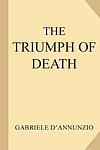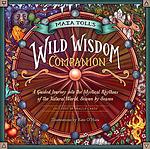Gabriele D'Annunzio
Gabriele D'Annunzio was an influential Italian writer, poet, journalist, playwright, and soldier during the late 19th and early 20th centuries. Known for his extravagant lifestyle and controversial political activities, he played a key role in the development of Italian literature and nationalism. His works are characterized by their sensual and sometimes decadent style, and he is considered one of the precursors of Italian Fascism.
Books
This list of books are ONLY the books that have been ranked on the lists that are aggregated on this site. This is not a comprehensive list of all books by this author.
-
1. The Triumph Of Death
This novel delves into the life of Giorgio Aurispa, a man who, amidst the decadence of Italian society, embarks on a journey of self-discovery and existential questioning. Through his relationships, particularly with the enigmatic Ippolita Sanzio, and his experiences across various European locales, Giorgio confronts themes of love, death, and the search for meaning. The narrative, rich with symbolic imagery and poetic language, explores the depths of human emotion and the inevitable confrontation with mortality, culminating in a profound exploration of the human condition and the pervasive sense of disillusionment that characterized the turn of the century.
-
2. Il Piacere
"Il Piacere" is a novel set in late 19th century Italy that explores the life of a wealthy and hedonistic aristocrat. The protagonist is caught in a constant pursuit of pleasure, indulging in luxurious parties, love affairs, and the arts, while struggling with ennui and a sense of emptiness. His life takes a turn when he falls in love with a woman who challenges his views and lifestyle. The novel delves into themes of decadence, hedonism, and the search for meaning in life.
-
3. The Flame Of Life
"The Flame of Life" is a novel that delves into the passionate and tumultuous affair between a famous writer and a Venetian noblewoman. Set against the backdrop of early 20th-century Venice, the narrative explores themes of love, art, and the quest for immortality through creation. The protagonist's obsession with leaving a lasting legacy is mirrored in the intense and consuming relationship he shares with his lover, making the city of Venice a central character in their story. The novel is rich in symbolic imagery and poetic language, reflecting the author's fascination with beauty, decadence, and the complexities of the human soul.
-
4. Maia
"Maia" is a lyrical exploration of sensuality and artistic creation, following the journey of a young poet who becomes entranced by the beauty of a woman named Maia. As the poet becomes increasingly obsessed with his muse, he delves into a world of aesthetic pleasure and poetic inspiration, seeking to capture the essence of Maia's allure through his verses. The narrative weaves a tapestry of passion and beauty, reflecting on the nature of desire and the intertwining of life and art, ultimately questioning the boundaries between reality and the ideal, and the cost of artistic obsession.



